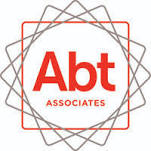Author Interviews, Cost of Health Care, Medicare / 14.08.2019
ACOs Can Improve Care and Reduce Costs in Underserved Areas, But May Require Startup Subsidies
MedicalResearch.com Interview with:
 Matthew Trombley, Ph.D.
Associate/Scientist
Abt Associates
MedicalResearch.com: What is the background for this study?
Response: CMS developed the Accountable Care Organization
(ACO) Investment Model (AIM) as part of the Medicare Shared Savings Program (MSSP) to encourage the growth of ACOs in rural and underserved areas. The goal of our study was to see if AIM ACOs could successfully decrease Medicare spending in these areas.
(more…)
Matthew Trombley, Ph.D.
Associate/Scientist
Abt Associates
MedicalResearch.com: What is the background for this study?
Response: CMS developed the Accountable Care Organization
(ACO) Investment Model (AIM) as part of the Medicare Shared Savings Program (MSSP) to encourage the growth of ACOs in rural and underserved areas. The goal of our study was to see if AIM ACOs could successfully decrease Medicare spending in these areas.
(more…)
 Matthew Trombley, Ph.D.
Associate/Scientist
Abt Associates
MedicalResearch.com: What is the background for this study?
Response: CMS developed the Accountable Care Organization
(ACO) Investment Model (AIM) as part of the Medicare Shared Savings Program (MSSP) to encourage the growth of ACOs in rural and underserved areas. The goal of our study was to see if AIM ACOs could successfully decrease Medicare spending in these areas.
(more…)
Matthew Trombley, Ph.D.
Associate/Scientist
Abt Associates
MedicalResearch.com: What is the background for this study?
Response: CMS developed the Accountable Care Organization
(ACO) Investment Model (AIM) as part of the Medicare Shared Savings Program (MSSP) to encourage the growth of ACOs in rural and underserved areas. The goal of our study was to see if AIM ACOs could successfully decrease Medicare spending in these areas.
(more…)